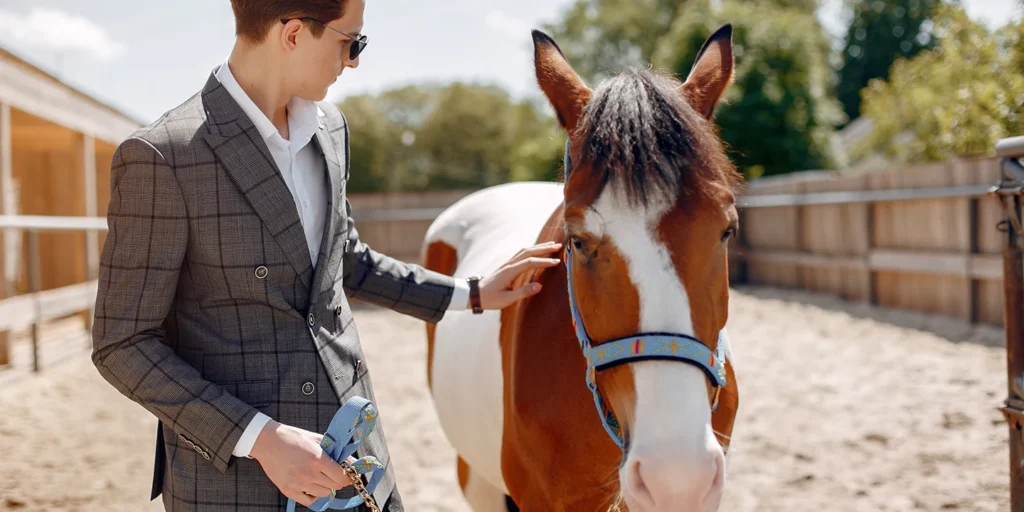You’ve spent all your hard earned, and maybe not yet earned, money on the perfect horse. A new Unicorn in the barn! What happens if your Unicorn has serious, performance limiting, flaws that were not disclosed or was not what was presented. Are you stuck with the “as is” clause in your sales agreement?
“The SELLER makes no other warranties, express or implied, including the warranties of fitness for a particular purpose. Horse is sold as is. The BUYER warrants that BUYER has had the option to review the condition and health of the horse, including any veterinarian examinations, at BUYER’ s expense.”
That language looks scary and official. What does it really mean?
Express Warranties
An express warranty is any affirmation of fact promise about the character of an item made by a seller used in negotiations. Express warranties can be verbal or written statements, or they can even be duplicates or models. The statement made by the seller must be part of the bargaining process in order to create an express warranty under Georgia law [See O.C.G.A. 11-2-313]. A seller doesn’t need to use the word warranty to create one.
Examples of an express warranty might be:
Registered Hanoverian
16.2 hands
Gelding
12 years old
Using one of the examples above, this would mean if a seller of a horse expressly claimed the horse is 12 years old (either verbally or in a written description), and the purchaser subsequently finds out the horse is 15 years old, the seller cannot escape potential liability just because there is a “sold as is” clause in the contract. Sometimes express warranties can be in the form of duplicates or models. For example, if a breeder were to show you a foal and say “yours will look exactly like this one”, the breeder is creating an express warranty, and express warranties cannot be voided or disclaimed.
Implied Warranties: Fit for a Particular Purpose
Where the seller at the time of contracting has reason to know any particular purpose for which the goods are required and that the buyer is relying on the seller’s skill or judgment to select or furnish suitable goods, there is, unless excluded or modified under Code Section 11-2-316, an implied warranty that the goods shall be fit for such purpose. O.C.G.A. 11-2-315. Unless the circumstances indicate otherwise, all implied warranties are excluded by expressions like “as is,” “with all faults,” or other language which in common understanding calls the buyer’s attention to the exclusion of warranties and makes plain that there is no implied warranty O.C.G.A. 11-2-316(3)(a).
Examples of implied warranties are often verbal representations:
He floats down the line
Has automatic changes
No prep at horse shows
Can be brought along by an amateur
In order to create an implied warranty of fitness, the seller must be aware at the time of the sale, the purpose for which the goods will be used. For example, if a buyer posts a Facebook ad, “ISO of 3 foot children’s hunter, no prep and has automatic changes” indicating he/she is looking to purchase a horse suitable to perform in the Children’s Hunters in the 3 foot division, the fact that the horse should not require 3cc’s of sedative to get in the ring, is an implied warranty of fitness for a particular purpose, even if neither party used or wrote the word “quiet” anywhere during negotiations.
Fraud vs. Breach of Contract
Fraud and breach often occur at the same time in a horse sale. You purchased a Training Level eventer for your teenage child, only to find out it had been nerved. You bought an adult amateur competition horse, only to find out it is hotter than your farrier’s forge. Or you buy an investment horse, just to learn it has leptospirosis, or a potential broodmare is a fragile foal syndrome carrier.
How do you determine what “laws” the seller broke? If you think the seller had criminal intent, you should immediately report the incident to your local police. However, if you wish to sue the seller, you can potentially file a suit for breach of contract and/or fraudulent inducement.
Simply put, breach of contract is a failure to live up to the terms of a contract.
The doctrine of fraudulent inducement is the willful misrepresentation of a material fact, made to induce another to act, upon which such person acts to his injury. In all instances, the basis of the fraud are misrepresentations allegedly made by the parties, but all of which are allegedly made outside of the construction of the contract. O.C.G.A. 51-6-2(a).
OK, now what? In order to be able to pursue damages for fraud at some later date, you must request to rescind the contract. In Georgia, the rescission of the contract must be made in express and unequivocal terms and must be made promptly. Rescission will include the offer to return the horse and ask for your money. If they do not agree to return the money and accept the horse, then you have laid the foundation for your future claim. Please note that under Georgia law, an action for a breach of contract of sale must be brought within four (4) years after the breach occurred.
Contact an attorney at Sanchez Curtis Law to see how we can help you navigate the complex world of horse sales, or better yet, ask for a customized horse sales agreement!
